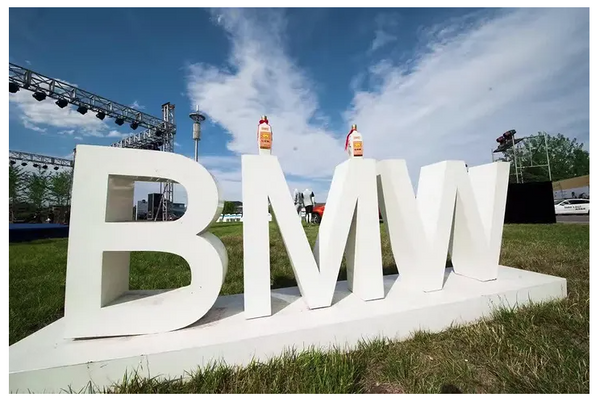On September 9, the BMW Group announced that it will be the first to use cylindrical batteries in "new generation" models from 2025. The confirmed cylindrical battery suppliers are CATL and Yiwei Lithium Energy. BMW Group has awarded battery cell production demand contracts worth more than 10 billion euros (about 70 billion yuan) to these two partners.
At the same time, CATL announced that from 2025, CATL will supply cylindrical batteries for pure electric models of BMW Group's "new generation" model architecture. Under the agreement, CATL will supply BMW with new cylindrical batteries with a standard diameter of 46 mm. These products will be produced at two battery factories in China and Europe, each with an annual capacity of 20GWh for BMW.

Yiwei Lithium Energy also announced that its subsidiary Hubei Yiwei Power Co., Ltd. has received a letter from BMW Group, Germany, and will provide large cylindrical lithium-ion batteries for BMW Group’s Neue Klasse series models.
Yiwei Lithium is a fan of cylindrical batteries, and the mainstream battery route of the Ningde era is square batteries.
According to information released by BMW, the cylindrical battery purchased this time will use a new battery cell technology, which BMW calls the sixth-generation cell technology.
Mr. Wei Bofan, director of research and development at BMW Group, said: "Our sixth-generation lithium-ion batteries will bring a major leap in technology, increasing the energy density by more than 20%, the cruising range by up to 30%, and the charging speed by as much as 30%. At the same time, we reduce CO2 emissions by up to 60% during battery production. These technological innovations will help us further achieve sustainability and customer benefits.”
Based on the prediction of the current market environment, the cost of sixth-generation batteries can be reduced by as much as 50% compared to fifth-generation products. The BMW Group aims to reduce the manufacturing costs of purely electric models to the same level as BMW's most advanced combustion engine models.
The new cylindrical battery has a standard diameter of 46 mm and two different heights. Depending on the model, the battery will be efficiently integrated into the body structure, reducing space occupation, thus realizing the perfect integration of the battery and the body. The space occupied by the original battery module will be greatly optimized.
The sixth-generation cell technology will also offer, for the first time, the option to use lithium iron phosphate (LFP) as the cathode material, further avoiding the use of raw materials cobalt and nickel in the cathode material.
While batteries are mainly sourced from its suppliers, BMW said that in order to keep the carbon footprint and resource consumption as low as possible from the supply chain end, the cobalt and lithium used in the sixth-generation cell technology will come from certified mines, which means The BMW Group will maintain a fully transparent and responsible way of mining. For these two raw materials, the BMW Group purchases directly or via the battery manufacturer.
BMW's new energy strategy has a huge demand for batteries. According to the plan, by the end of 2025, the BMW Group plans to deliver more than 2 million pure electric vehicles worldwide. By 2030, the BMW Group's pure electric models will account for 50% of its global sales. At that time, the other three brands of the BMW Group will also be fully electrified: Rolls-Royce brand will complete the electrification of all products; BMW Motorrad urban travel series will be fully electrified; MINI brand will also be launched in the early 2030s. fully electric

